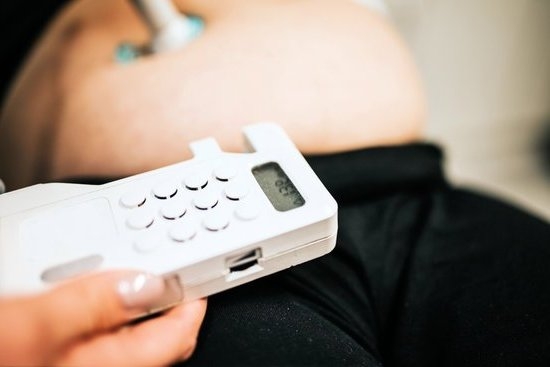Drug testing during pregnancy is a critical component of prenatal care that ensures the health and well-being of both the mother and the developing baby. It helps healthcare providers identify any potential substance abuse issues early on, allowing for appropriate interventions and support to be put in place. One question often asked by expectant mothers is: how often do they drug test during pregnancy? Understanding the frequency and significance of these tests is essential for ensuring a healthy pregnancy.
During prenatal care, expectant mothers can expect to undergo drug testing periodically throughout their pregnancy, typically at their initial prenatal visit and then at various points during the term. The frequency of these tests may vary depending on individual circumstances, such as a history of substance abuse or other risk factors. Regular drug testing provides healthcare providers with valuable information to monitor the health of both mother and baby and make informed decisions about appropriate care and support.
Factors influencing how often drug tests are conducted during pregnancy include past history of substance use, living environment, lifestyle choices, and overall health status. Healthcare providers may recommend additional testing if there are concerns about potential drug use or if certain risk factors are present. It is important for pregnant women to be open and honest with their healthcare team about any substance use in order to receive the necessary support and interventions to promote a healthy pregnancy.
Overview of Prenatal Drug Testing Process
Prenatal drug testing is a crucial aspect of ensuring the health and well-being of both the mother and the developing baby. It involves screening pregnant women for any substances that may harm the fetus or affect pregnancy outcomes. The process usually begins during the initial prenatal visit, where healthcare providers inform mothers about the importance of drug testing and obtain consent before proceeding.
During prenatal drug testing, women are typically asked to provide a urine sample, which will be analyzed for various drugs such as marijuana, cocaine, opioids, amphetamines, and benzodiazepines. In some cases, blood tests may also be conducted to screen for a wider range of substances. The frequency of these tests may vary depending on individual circumstances, medical history, and risk factors.
Healthcare providers may recommend additional drug tests if there are concerns about substance use or if the mother shows signs of drug dependence. It is essential to disclose any history of drug use or addiction to your healthcare provider to receive appropriate care and support throughout pregnancy. Being honest about substance use can help healthcare professionals develop a personalized treatment plan to address any issues that may arise during pregnancy.
| Drug Testing Frequency | Recommendation |
|---|---|
| Early prenatal visit | Initial screening |
| High-risk pregnancies | more frequent testing |
| Suspected substance abuse | regular monitoring |
Frequency of Drug Testing During Pregnancy
In order to ensure the health and well-being of both the mother and the baby, healthcare providers often recommend drug testing during pregnancy. One common question that arises is: how often do they drug test during pregnancy? The frequency of drug testing during pregnancy can vary depending on a variety of factors, including the mother’s medical history, substance use history, and specific healthcare provider protocols.
Regular Monitoring Throughout Pregnancy
Typically, pregnant women can expect to undergo drug testing at their initial prenatal visit as part of routine screening procedures. This initial test helps establish a baseline for any substances present in the mother’s system at the beginning of pregnancy. Subsequent drug testing may be recommended periodically throughout the pregnancy to monitor for any changes in substance use. Healthcare providers may also conduct random or scheduled drug tests to ensure ongoing sobriety.
High-Risk Pregnancies and Increased Monitoring
For pregnant women with a history of substance abuse, or those who are deemed high-risk due to other factors, such as previous complications in pregnancy or inadequate prenatal care, more frequent drug testing may be necessary. In these cases, healthcare providers may schedule regular drug tests at each prenatal appointment or require additional urine screenings outside of appointments to closely monitor substance use.
Additionally, if a woman tests positive for drugs at any point during her pregnancy, more frequent testing may be implemented to track progress and ensure compliance with treatment plans.
Postpartum Drug Testing
It is important to note that drug testing does not end with childbirth. In some cases, healthcare providers may also conduct postpartum drug testing to assess the newborn’s exposure to substances during pregnancy and determine appropriate follow-up care.
This continued monitoring in the postpartum period aims to support the health and safety of both the mother and baby as they transition into the early stages of infancy. Overall, understanding the frequency of drug testing during pregnancy can help pregnant women prepare for what to expect and navigate their prenatal care confidently.
Factors That May Influence How Often Drug Tests Are Conducted During Pregnancy
Drug testing during pregnancy is a crucial process that helps ensure the health and well-being of both the mother and the developing baby. The frequency of drug testing during pregnancy can vary depending on several factors.
One of the main determinants is the initial screening results. If a pregnant woman tests positive for drugs during her first prenatal visit, healthcare providers may opt to conduct more frequent drug tests throughout the pregnancy to monitor her progress and ensure a healthy outcome.
Another factor that may influence how often drug tests are conducted during pregnancy is the type of substance used. Some drugs have a longer detection window in the body compared to others, which may require more frequent testing to accurately assess the impact on the pregnancy. Additionally, if there are concerns about potential relapses or ongoing substance use, healthcare providers may decide to increase the frequency of drug testing as a precautionary measure.
It’s important to note that individual circumstances and medical history can also play a role in determining how often drug tests are administered during pregnancy. Women with a history of substance abuse, previous positive drug test results, or who are receiving treatment for addiction may be subject to more frequent monitoring. Ultimately, the goal of drug testing during pregnancy is to provide proper care, support, and interventions to promote a healthy pregnancy and delivery.
| Factors Influencing Drug Testing Frequency | Description |
|---|---|
| Initial Screening Results | Determine if more frequent testing is necessary based on first test results. |
| Type of Substance Used | Some substances require more frequent testing due to longer detection windows. |
| Individual Circumstances | History of substance abuse or addiction treatment can impact test frequency. |
Risks Associated With Drug Use During Pregnancy
Drug use during pregnancy poses significant risks to both the mother and the developing fetus. It is essential for pregnant women to understand these risks in order to make informed decisions about their health and the health of their baby. Here are some of the potential dangers associated with drug use during pregnancy:
- Increased risk of miscarriage or stillbirth
- Preterm labor and delivery
- Birth defects and developmental delays
- Low birth weight and growth restrictions
- Neonatal abstinence syndrome (NAS) in newborns
These risks highlight the importance of abstaining from drug use during pregnancy and seeking appropriate medical care. Prenatal care providers play a crucial role in educating pregnant women about the potential consequences of drug use on maternal and fetal health, as well as providing support and resources for those struggling with substance abuse.
It is equally important for healthcare providers to conduct regular drug testing during pregnancy to monitor for any signs of substance abuse. By detecting drug use early on, healthcare professionals can intervene and provide necessary interventions to ensure the well-being of both mother and baby.
This leads us to the question: how often do they drug test during pregnancy? The frequency of drug testing may vary depending on individual circumstances, but healthcare providers typically perform routine screenings throughout prenatal care to ensure a safe and healthy pregnancy.
Legal Implications of Drug Testing During Pregnancy
Drug testing during pregnancy is a vital process that helps ensure the health and well-being of both the mother and the unborn child. However, it is important to understand the legal implications that may arise from these tests. Here is an overview of some key legal considerations when it comes to drug testing during pregnancy:
- State laws: Each state in the US has its own guidelines regarding drug testing during pregnancy. Some states have mandatory drug testing policies for pregnant women, while others do not require it unless there are specific concerns about substance abuse. It is crucial for expectant mothers to be aware of the laws in their state regarding prenatal drug testing.
- Custody issues: In cases where drug use is detected during pregnancy, it can raise concerns about child custody after birth. Child welfare agencies may get involved if there are worries about the safety and well-being of the newborn due to maternal substance abuse. Legal battles over custody rights can arise, especially if continued drug use poses a risk to the child.
- Legal consequences: In some states, a positive drug test during pregnancy can lead to legal repercussions for the mother. This can include involvement with child protective services, court-ordered treatment programs, or even criminal charges depending on the severity of the situation. It is essential for pregnant women struggling with substance abuse to seek help and support to avoid potential legal consequences.
Navigating the legal landscape surrounding drug testing during pregnancy can be complex and daunting for expectant mothers. Seeking guidance from legal professionals or healthcare providers can help clarify any questions or concerns regarding the implications of prenatal drug testing. Ultimately, understanding the legal aspects of drug testing during pregnancy is crucial for ensuring a safe and healthy outcome for both mother and baby.
How Drug Testing During Pregnancy Impacts Prenatal Care and Childbirth
Drug testing during pregnancy plays a crucial role in impacting both prenatal care and childbirth. By routinely screening for substance use, healthcare providers can identify any potential risks early on and provide the necessary interventions to ensure the health and well-being of both the mother and the developing baby. The impact of drug testing during pregnancy extends beyond simply detecting substance use; it also influences the overall prenatal care process and childbirth experience.
Early Detection of Substance Use
One of the primary ways that drug testing during pregnancy impacts prenatal care is through early detection of substance use. Prenatal drug tests are typically conducted during the first prenatal visit, allowing healthcare providers to assess whether a pregnant woman has been using drugs or other harmful substances.
This early detection enables healthcare professionals to tailor their care plans to address any potential risks associated with substance use, such as complications during pregnancy, birth defects, or developmental issues in the baby.
Individualized Care Planning
Furthermore, drug testing during pregnancy allows for individualized care planning based on the specific needs of each pregnant woman. Depending on the results of the drug tests and the type of substances detected, healthcare providers can create personalized treatment plans that may include counseling, addiction support services, or referrals to specialized treatment programs.
This tailored approach not only addresses the immediate health concerns related to substance use but also helps women access the necessary support systems to achieve a healthier lifestyle for themselves and their babies.
Enhancing Childbirth Outcomes
Ultimately, the impact of drug testing during pregnancy extends to childbirth outcomes as well. By identifying and addressing substance use early on in prenatal care, healthcare providers can better manage any potential complications that may arise during labor and delivery.
Additionally, by providing ongoing support and monitoring throughout pregnancy, women who struggle with substance use have a higher chance of delivering healthy babies and experiencing positive childbirth experiences. Overall, drug testing during pregnancy contributes to improving prenatal care quality and promoting better outcomes for both mother and baby.
Resources and Support Available for Pregnant Women Struggling With Drug Use
Pregnancy can be a challenging time for women, especially for those struggling with drug use. It is essential for pregnant women to have access to resources and support to help them navigate this difficult journey. Fortunately, there are various programs and organizations available that provide assistance to pregnant women dealing with substance abuse issues.
One of the most common resources available for pregnant women struggling with drug use is substance abuse treatment programs specifically tailored for expectant mothers. These programs offer a combination of medical care, counseling, and support services to help women overcome their addiction and maintain their sobriety throughout pregnancy. These programs not only focus on the health of the mother but also prioritize the well-being of the unborn baby.
In addition to treatment programs, pregnant women can also seek support from community organizations, counselors, support groups, and healthcare providers who specialize in maternal-fetal medicine. These resources can provide emotional support, guidance, and practical assistance to pregnant women as they navigate the challenges of pregnancy while dealing with substance abuse issues. It is crucial for pregnant women to reach out and take advantage of these resources to ensure the best possible outcome for themselves and their babies.
Conclusion
In conclusion, the frequency of drug testing during pregnancy plays a crucial role in promoting the health and well-being of both the mother and the baby. By regularly monitoring for any substances that could potentially harm the developing fetus, healthcare providers can intervene early and provide necessary support to ensure a safe pregnancy.
While the exact schedule of drug testing may vary depending on individual circumstances and risk factors, it is essential for pregnant women to understand the importance of these screenings for the overall success of their prenatal care.
Furthermore, drug testing during pregnancy not only helps identify potential risks but also allows healthcare professionals to tailor treatment plans accordingly. This proactive approach can help reduce the likelihood of complications during childbirth and improve outcomes for both mother and baby. Additionally, by addressing substance use early on, pregnant women can access resources and support services to help them overcome any challenges they may face during this critical period.
Ultimately, promoting the health and well-being of both mother and baby should be the primary goal of drug testing during pregnancy. By prioritizing early intervention, education, support, and resources for pregnant women struggling with substance use issues, we can create a safer and healthier environment for expectant mothers and their children.
It is essential to continue raising awareness about the importance of drug testing during pregnancy and ensure that all pregnant women receive the care they need to have a successful pregnancy journey.
Frequently Asked Questions
Do You Automatically Get Drug Tested When Pregnant?
Drug testing during pregnancy is not automatically done for every pregnant woman. Typically, healthcare providers will only conduct drug tests if there are specific concerns about substance abuse or if it is requested by the pregnant individual.
Do They Drug Test Your Pee at Every Prenatal Appointment?
Prenatal appointments usually involve routine urine tests to monitor health indicators related to pregnancy, such as protein levels or infections. However, drug testing in pee is not typically done at every appointment unless there are reasons to suspect drug use.
Can You Refuse a Drug Test While Pregnant?
Pregnant individuals have the right to refuse a drug test, but it is important to understand the potential consequences of doing so. Refusing a drug test may lead to further investigations or interventions by healthcare providers if they suspect substance abuse could harm the pregnancy.

Welcome to my fertility blog. This is a space where I will be sharing my experiences as I navigate through the world of fertility treatments, as well as provide information and resources about fertility and pregnancy.





